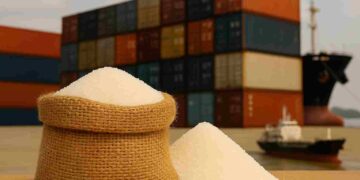Source: China Informatics. The European Parliament’s Committee on International Trade has approved a proposal to increase tariffs on certain agricultural products and fertilizers imported from Russia and Belarus. The measure aims to reduce the EU’s dependency on these countries and to support domestic production within the bloc.
Key Tariff Adjustments
- Agricultural Products: A 50% increase in tariffs will apply to specific agricultural goods from Russia and Belarus that are not currently subject to other customs duties. This includes products such as sugar, vinegar, flour, and animal feed.
- Fertilizers: An ad valorem tariff of 6.5% will be imposed on fertilizers imported from these countries. Additionally, a specific duty of €40 to €45 per tonne will be applied during 2025–2026, escalating to €430 per tonne by 2028.
Objectives and Implications
The primary goal of these tariff increases is to diminish the EU’s reliance on Russian and Belarusian imports, particularly in sectors deemed critical for food security. By making imports from these countries less economically attractive, the EU intends to encourage diversification of supply sources and bolster its internal production capabilities.
Furthermore, the European Commission has been tasked with monitoring the impact of these measures on the EU’s agricultural market and prices. Should significant price increases occur, the Commission is expected to take appropriate actions to mitigate adverse effects on the internal market.
Next Steps
The proposed tariff adjustments will be presented for a vote at the European Parliament’s upcoming plenary session in Brussels on May 22. If approved, these measures will become part of the EU’s broader strategy to enhance economic resilience and reduce exposure to external geopolitical risks.
Major Export Perspectives:
- Export Values: In 2023, the EU imported €1.69 billion worth of agricultural goods and fertilizers from Russia and Belarus, with €380 million attributed to agricultural products and €1.31 billion to fertilizers.
- Exporters: Russia, Belarus
- Importer Countries: European Union member statesEUR-LexBabel+1Європейська правда+1
Top Competitor Producer: European Union domestic producers, particularly in countries like France and the Netherlands, are expected to benefit from reduced competition due to the tariff increases.
Key Importers: EU member states that previously relied heavily on Russian and Belarusian agricultural imports.
Latest Import/Export Statistics: The EU’s imports of urea and nitrogen-based fertilizers from Russia were significant at 3.6 million tonnes in 2023 and increased considerably in 2024.












